New York/Franklin, Virginia
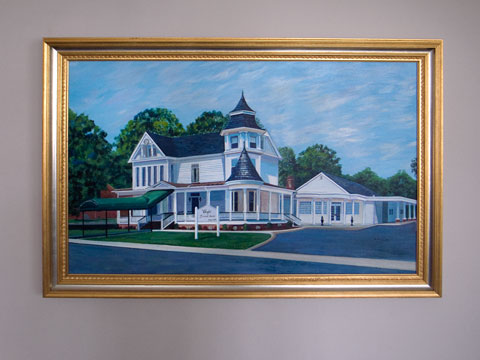
Funeral home, Franklin, Virginia -- © Brian Rose
It was not a happy circumstance that brought me across the James River to Franklin, Virginia two summers ago. A cherished aunt had passed away after a long convalescence. The mood was somber, but also relieved, as her long struggle had finally ended peacefully.

Funeral home, Franklin, Virginia -- © Brian Rose
After the funeral, family members gathered at Fred’s, a comfortably informal bistro on Main Street. I slipped out during the afternoon to take photographs of downtown Franklin. I walked the empty street shooting storefronts, peanut silos, and a former theater. In the distance I could just make out the smokestacks of the International Paper Mill, formerly Union Camp, where Aunt Louise worked for much of her life.
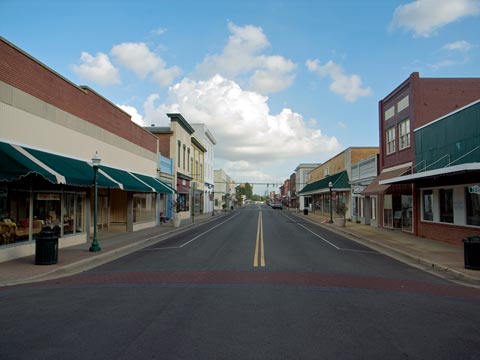
Main Street, Franklin, Virginia -- © Brian Rose
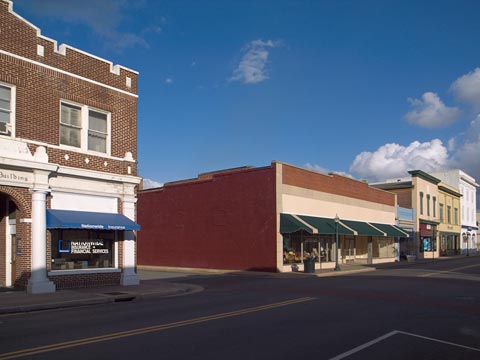
Main Street, Franklin, Virginia -- © Brian Rose

Main Street, Franklin, Virginia -- © Brian Rose
When the Camp family owned the mill, most of the wealth stayed in town, and large houses were built on the bluff above the Blackwater River. The river, Franklin’s reason for being, has also been its nemesis. In 1999 hurricane Floyd left the downtown underwater, and a storm in 2006 did further damage. Despite efforts to rejuvenate downtown—most buildings appeared in good condition--many storefronts remain empty or underutilized.
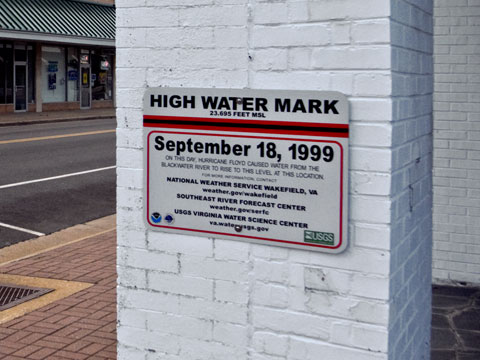
Main Street, Franklin, Virginia -- © Brian Rose
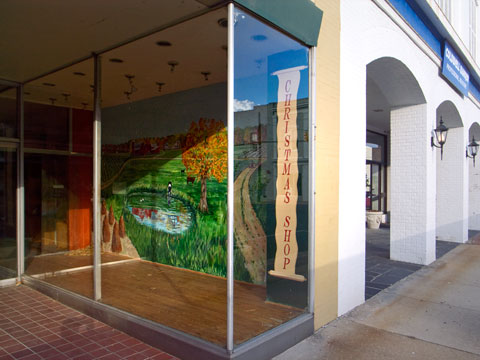
Main Street, Franklin, Virginia -- © Brian Rose
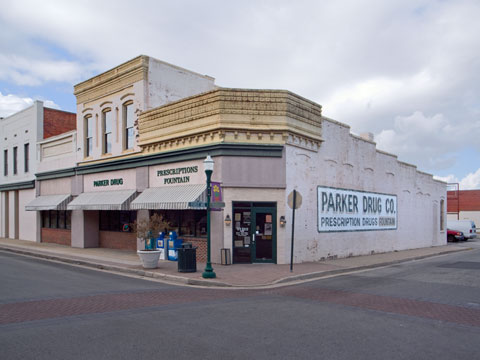
Main Street, Franklin, Virginia -- © Brian Rose
Although the Camp name is still prominent in Franklin, the fate of the mill, and by default, the economic well being of the whole area was long ago put into the hands of a global corporation. Just two months ago, International Paper decided to close the plant, putting 1,100 employees out of work, along with another 2,000 workers in related services.
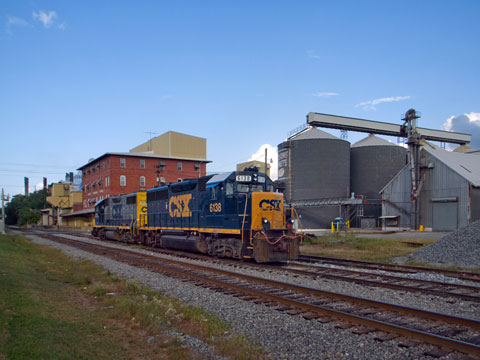
Franklin, Virginia -- © Brian Rose
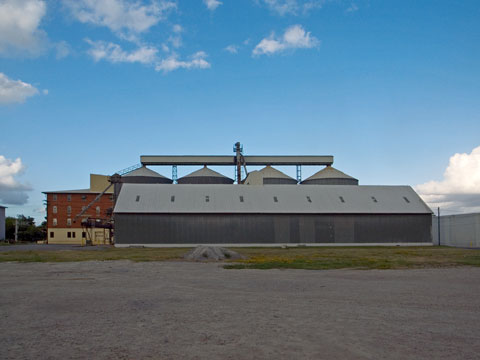
Peanut silos, Franklin, Virginia -- © Brian Rose
I think of Louise, her pride and self-sufficiency. As hard as it was for me to picture her toiling on an assembly line year after year, I know she retired with the satisfaction that she had earned her keep, and could afford to live comfortably, if frugally, as she got older. But what if they had closed the plant on her?
Undoubtedly, Franklin will survive—but it will be hard. Perhaps, eventually, a more diversified economy will emerge as the orbits of Hampton Roads and Richmond expand outward. But I’m not sure I want to see malls and highways overrunning small cities like Franklin, displacing the surrounding cotton and peanut fields, and carpeting over the history—with all its blood, sweat, and tears—of the Southside of the James.
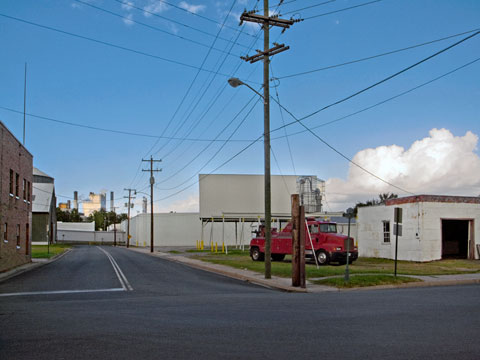
Paper mill, Franklin, Virginia -- © Brian Rose
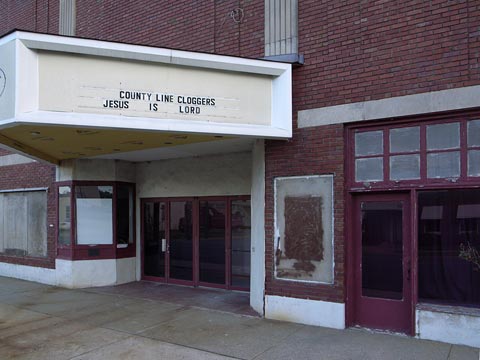
Lyon's State Theatre, Main Street, Franklin, Virginia -- © Brian Rose
NPR story on Franklin here.

0 Comments:
Post a Comment
Links to this post:
Create a Link
<< Home